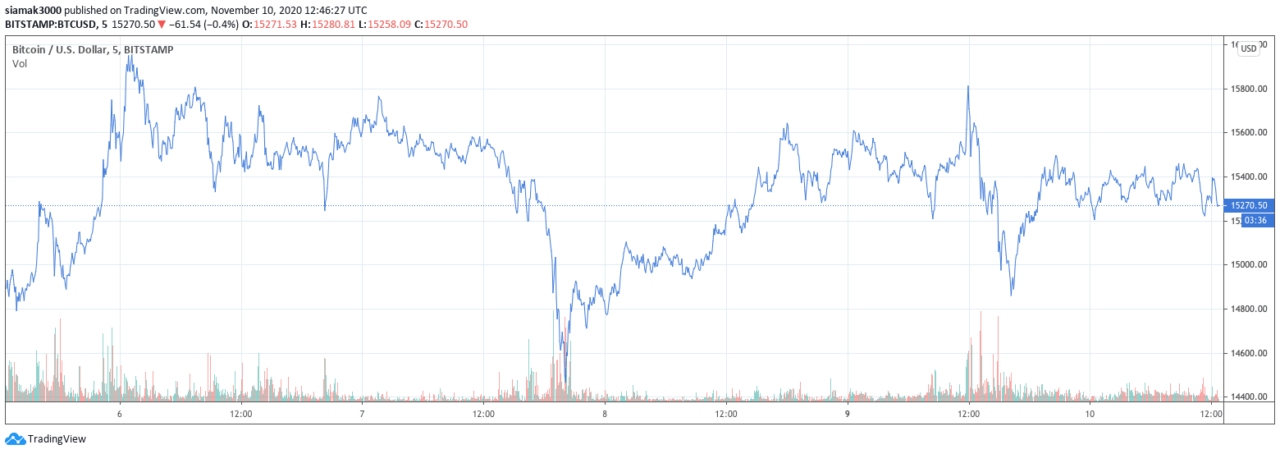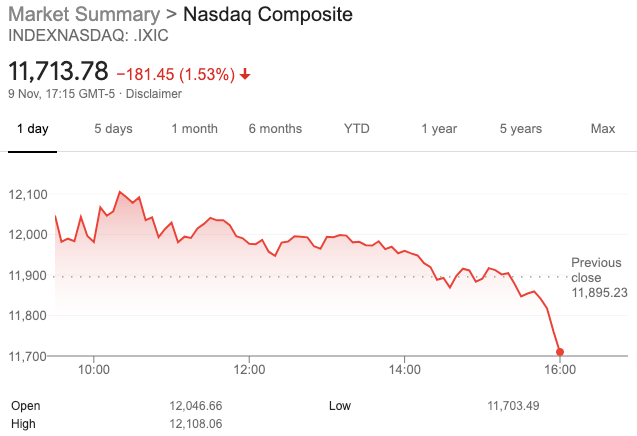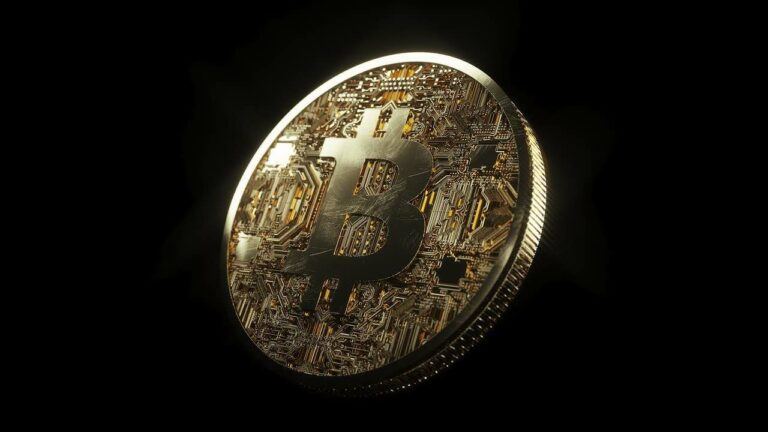Although some analysts are saying Bitcoin’s price fell yesterday following Pfizer’s announcement about the effectiveness of the COVID-19 vaccine it is developing in collaboration with BioNTech, does this narrative really make any sense?
Around 11:50 UTC on Monday (November 9), American multinational pharmaceutical corporation Pfizer Inc. announced that the COVID-19 vaccine it is developing in collaboration with German biotechnology company BioNTech SE announced via a press release that their mRNA-based COVID-19 vaccine candidate, “BNT162b2”, was found to be “more than 90% effective in preventing COVID-19 in participants without evidence of prior SARS-CoV-2 infection in the first interim efficacy analysis.”
What happened is that American multinational pharmaceutical corporation Pfizer Inc. announced some highly encouraging news about the COVID-19 vaccine it has developed in collaboration with German biotechnology company BioNTech SE. In its press release, Pfizer said their mRNA-based COVID-19 vaccine candidate, “BNT162b2”, was found to be “more than 90% effective in preventing COVID-19 in participants without evidence of prior SARS-CoV-2 infection in the first interim efficacy analysis.”
Dr. Albert Bourla, Pfizer Chairman and CEO, had this to say:
“Today is a great day for science and humanity. The first set of results from our Phase 3 COVID-19 vaccine trial provides the initial evidence of our vaccine’s ability to prevent COVID-19. We are reaching this critical milestone in our vaccine development program at a time when the world needs it most with infection rates setting new records, hospitals nearing over-capacity and economies struggling to reopen.
Initially the good news about the interim results of the phase 3 trial of the Pfizer-BioNTech COVID-19 vaccine candidate seemed to help the price of Bitcoin to go up.
At 11:30 UTC on November 9, BTC-USD was trading around $11,510 on crypto exchange Bitstamp. Five minutes after Pfizer’s tweet, the Bitcoin price was at $15,813, i.e. the Bitcoin price had responded to this news by going up 1.95%, as you can see in the five-day BTC-USD price chart from TradingView:

However, as CNBC reported yesterday, as soon as investors and traders started to absorb the implications of this news for the U.S. economy, shares of “popular stay-at-home plays such as Amazon, Zoom Video and Netflix” started to fall, which led to the Nasdaq Composite index falling 1.53% to close at 11,713.78. For example, the price of Netflix stock (NASDAQ: NFLX) dropped 8.59% to close at $470.50.

Lindsey Bell, chief investment strategist at Ally Invest, told CNBC:
“The ‘stay at home’ trade, which has led the market higher for most of this year, may be falling out of favor. There’s still a good long-term case for tech, but it may not outpace the rest of the market like it has since March.”
Meanwhile, Bitcoin, the price of which had reached the intraday high of $15,813 at 11:55 UTC, seemingly behaved like a high-beta tech stock, and by 16:05 UTC, it had reached the intraday low of $14,929, which means it had fallen $884 or 5.6%.
As for Gold, which has traditionally been used as a safe haven asset, its price fell by more than 5% yesterday as traders and investors moved into riskier assets (in particular, those stocks which have suffered the most during the current COVID-19 pandemic due to lockdown measures).
But does Bitcoin, which is up over 111% vs USD so far in 2020, really need to fear the Pfizer-BioNTech COVID-19 vaccine (or any other COVID-19 vaccine for that matter)?
The answer seems to be no.
First, during an interview on CNBC’s “Squawk Box”, Dr. Scott Gottlieb, a former FDA Commissioner and a member of Pfizer’s Board of Directors, said that we should not be expecting the Pfizer-BioNTech vaccine to be “widely available” in the U.S. until Autumn 2021:
“The vaccine is really a 2021 event in terms of when it’s going to provide protective immunity to that initial tranche of recipients. Then in terms of when it would be widely available, I think the hope still is … you could have a vaccine broadly maybe the end of the second quarter, maybe into the third quarter. You’re looking at having the vaccine available in time for the fall 2021 Covid season.”
According to a report by STAT News that was published yesterday, Michael Osterholm, director of the University of Minnesota’s Center for Infectious Diseases Research and Policy, had this to say:
“I don’t want to dampen any enthusiasm for this vaccine. I just want us to be realistic. For a vaccine to really have maximal impact, it’s going to have to also reduce severe illness and death. And we just don’t know yet.”
Second, as STAT News correctly pointed out, “because the vaccine has been studied for only a matter of months, it is impossible to say how long it will protect against infection with the virus.” The same is true for any other potential COVID-19 vaccine that is currently under development. In fact, there are some indications (e.g. from research being done in Russia) that no COVID-19 vaccine might be able to offer more a few months of immunity.
Third, even if multiple safe and effective COVID-19 vaccines become widely available by the end of this year, which would be wonderful if it happens, in no way does this affect Bitcoin’s attractiveness in the long term as a high beta inflation hedge asset as an alternative to gold.
After all, this is the reason that legendary billionaire investor Stanley Druckenmiller is buying Bitcoin for the Duquesne Family Office, as CryptoGlobe reported earlier today.
Featured Image by “SnapLaunch” via Pixabay.com
The views and opinions expressed by the author are for informational purposes only and do not constitute financial, investment, or other advice.









